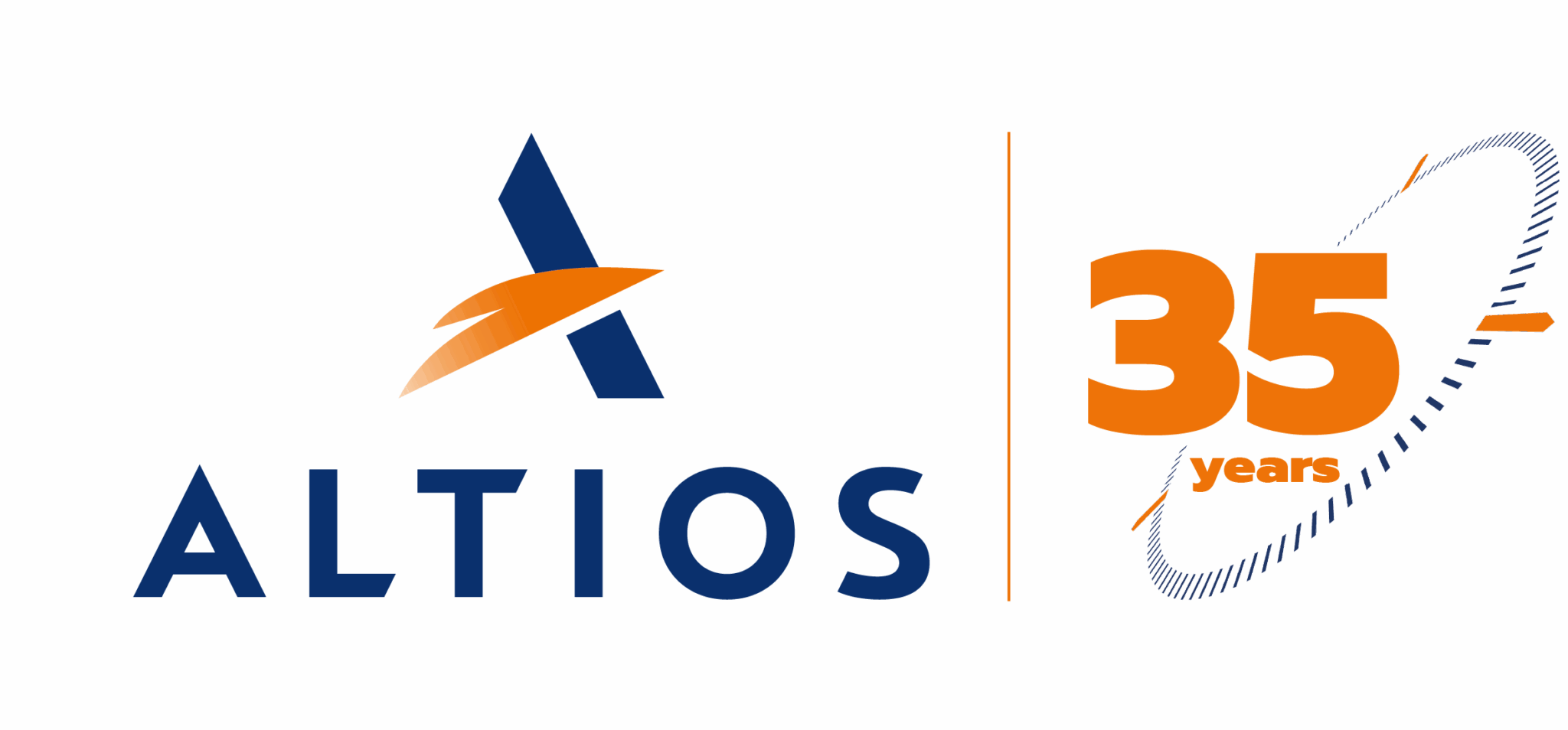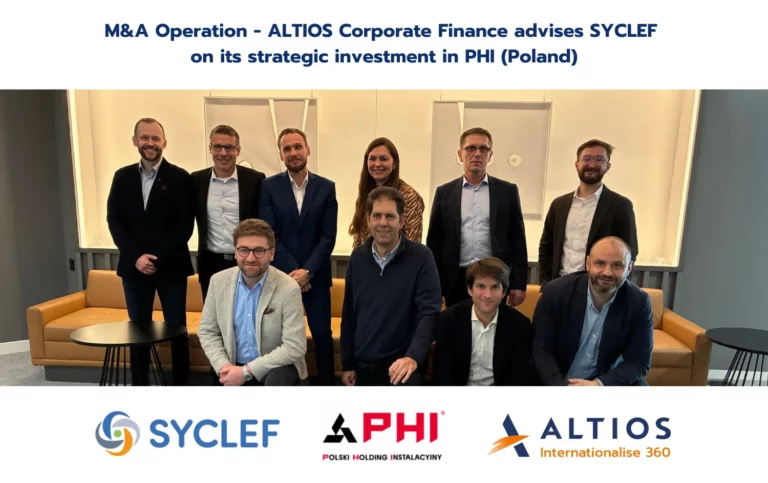Understanding French Labor Market
Why France Remains a Top-Tier Destination for Midcap Expansion in 2025
France continues to attract international mid-sized companies thanks to its robust infrastructure, central location within the EU, and forward-thinking initiatives in digitalization and sustainability. Despite challenges such as regulatory complexity and political volatility, France remains a compelling choice for companies aiming to establish a strategic European presence.
Human Capital: Your Most Strategic Asset Abroad
In 2025, the French workforce will be shaped by a unique mix of generational change, digital transformation, and shifting values. Compensation remains important, but flexibility and purpose are now indispensable. To recruit and manage human resources in France, companies must adapt to these evolving expectations while ensuring full legal and cultural alignment.
1. The 2025 French Human Resources Landscape: Risks and Benefits in France
According to OECD Economic Outlook of May 2025 and the INSEE Public Debt Data, 2025 France’s economy is projected to grow moderately at 1.2% in 2025, but long-term workforce planning remains challenging due to political uncertainty and public debt exceeding 115% of GDP. Unemployment stands at 7.5%, with notable disparities between regions and sectors. Unemployment among executives, for example, is even lower, according to the INSEE. In 2023, it stood at 3.7%, making these profiles scarce and difficult to recruit as they are already employed. Therefore, talent shortages persist in high-growth industries, including technology, healthcare, and renewable energy. ALTIOS’ added value in these tight markets is to seek out the right profiles, most of whom are already employed.
Compensation remains the top concern for job seekers, with 54% identifying salary as their primary consideration. However, flexibility in working conditions and a meaningful mission have also become essential. To remain competitive, companies must integrate flexible work policies, purpose-driven messaging, and robust compensation structures.
Regional talent clusters are evolving. Paris and Lyon lead in digital talent availability, while healthcare professionals are in critical shortage nationwide. Renewables and infrastructure sectors are growing rapidly, but skill mismatches hinder project timelines..
2. Recruiting Talent in France
- France’s recruitment landscape is highly structured and localized; successful hiring depends on choosing the right channels and tailoring your employer brand to meet candidate expectations. While job boards like Apec and Welcome to the Jungle, Cadremploi, or the social media LinkedIn remain effective.
- Employer branding must be credible and authentic; candidates increasingly value transparency about work-life balance, diversity, and sustainability efforts. Companies are shifting toward storytelling approaches, using employee testimonials and social media to share workplace experiences.
- The hiring process is strictly regulated, and contracts, whether fixed-term (CDD) or indefinite (CDI), must be signed before the employee’s first day. Employers are responsible for registering employees with French authorities, arranging occupational health checks, and ensuring proper onboarding procedures.
- For foreign hires, EU citizens do not need visas; however, non-EU hires require employer sponsorship and additional administrative coordination. Payroll and tax treatment must be adjusted accordingly, especially in cases of dual tax residency.
3. Employment Law: The Non-Negotiables For Successful Recruitments
Understanding French labor law is essential for a compliant and sustainable HR strategy. The standard workweek is 35 hours, and employees are entitled to at least five weeks of paid leave annually, plus public holidays. Executive-level employees may benefit from additional time off under RTT agreements. For more details, you can visit the following websites: Service-Public.fr, Temps de travail dans le secteur privé, and Ministère du Travail, RTT
Dismissals must follow strict legal procedures; a flawed redundancy process, such as missing documentation, can expose a company to lawsuits averaging €25,000 in damages. In addition to severance obligations, companies must prepare for disputes to be handled by the labor courts (Prud’hommes).
Recent legislation introduces new requirements for remote work arrangements, including mandatory digital contracts and verified time tracking systems. Employers must also comply with evolving rules on collective bargaining and employee representation through the CSE (Social and Economic Committee) in firms with 50 or more staff.
4. Managing HR Locally
Deciding what to manage in-house versus what to outsource is critical when scaling HR functions in France. A balanced approach allows organizations to retain strategic control while leveraging local expertise for compliance and efficiency.
Functions to Build In-House:
- Talent acquisition for strategic or executive roles
- Leadership development and performance management
- Internal cultural alignment and employee engagement programs
Functions to Outsource:
- Payroll processing and benefits administration
- Local labor law compliance and regulatory updates
- Executive search and volume recruitment
Key HR Technologies for Midcaps:
- HR and administrative management software such as Lucca: Ideal for administrative workflows including leave tracking and onboarding
- Payroll management software: Simplifies payroll and ensures up-to-date tax compliance
GDPR Compliance Essentials :
- According to the CNIL, employers must store employee data within the EU or use GDPR-compliant servers
- Obtain clear, written employee consent for all data processing
- Conduct annual data audits to detect and resolve vulnerabilities
Retention Strategies and Tools :
- AI-powered career mobility platforms: Suggest internal role progression paths
- Four-day workweek pilots: Boost engagement without reducing pay
- Student debt assistance: Incentivizes long-term retention among younger employees
Learning and Development Adjustments:
- Replace non-certified training content with programs that offer verifiable credentials
- Use modular microcredentials to build adaptive, role-specific learning pathways
In short, the most successful companies are those that blend local compliance rigor with forward-thinking HR design, using technology and outsourcing selectively to scale with confidence. In-house teams often focus on strategic activities like leadership development and cultural integration, while external providers handle payroll, benefits administration, and regulatory compliance.
5. Risk Management When Hiring Employees in France
France’s business environment offers strong opportunities but also presents a range of HR-specific risks that must be proactively addressed. These risks span political, legal, labor market, and sectoral dimensions. Below is a breakdown of the major risk categories and their mitigation strategies.
Political and Economic Instability
- Fragmented governance under a minority administration has created legislative gridlock.
- Public debt surpassing 115% of GDP leads to fiscal uncertainty.
- Nationwide rail strikes (e.g., Mai 2025) disrupt workforce mobility and logistics.
- Potential reversals of 2024 labor reforms (e.g., dismissal rules) add planning uncertainty.
- Volatile tax policies may target foreign investors.
Mitigation Tactics:
- Dual-scenario workforce budgeting as used by 78% of CAC 40 firms.
- Flexible remote work policies during strikes.
Regulatory and Bureaucratic Complexity
- Redundancy requires complex files & procedures; errors cost up to €25,000 per case.
- Revised apprenticeship can affect learning and development planning
Mitigation Tactics:
- Use of decentralized payroll hubs
- AI-driven contract audits
- Dedicated FDI and regulatory advisors
Job Market Pressures
Despite 7.5% unemployment, skill mismatches persist in high-growth sectors:
- According to Numcap, indicators suggest that more than 500,000 jobs will be available in the tech sector by 2025!
- 55% of construction firms report project delays
- Example from engineering – according to government figures, France trains 40,000 engineers each year, compared with 60,000 to 65,000 recruitment needs per year.
Mitigation Tactics:
- Modular micro credentials for rapid reskilling
- Temporary staffing buffers
- Cross-training programs and internal mobility tracking
Sector-Specific Risks and Responses
Technology Sector:
- 58% attrition for AI engineers
- Solutions: Equity vesting, experimental visa programs, remote R&D teams
Renewable Energy :
- 9-month average permitting delays
- Solutions: Dedicated government relations units, VR-based upskilling
Legal and Fiscal Developments
- The long-term partial activity rebound (APLD-R) scheme aims to support companies facing a sustained reduction in activity that is not likely to jeopardize their long-term viability. It therefore allows for a reduction in working hours while maintaining part of the salary.
- Employer reimbursement of 75% of transport costs is now tax-exempt.
- Updated SCCs require EU-localized storage of HR analytics and employee data.
- AI in recruitment must meet transparency standards or face heavy fines.
Mitigation Tactics:
- Quarterly compliance audits
- Encrypted whistleblower systems (used by 64% of multinationals)
- Mandatory CSE consultation for employee monitoring tools
In summary, risk readiness in France requires not only legal vigilance but also operational adaptability. Companies that integrate predictive planning, technological tools, and sector-specific countermeasures into their HR strategy will be far better equipped to navigate this complex and evolving environment.
France’s complex regulatory environment poses risks at every stage of HR operations. Political instability continues to affect labor laws, with the minority government struggling to pass the national budget. Rail strikes, tax law changes, and employment policy reversals must be factored into HR planning.
Administrative challenges are numerous; setting up a subsidiary requires compliance with various procedural steps, while dismissals and redundancy procedures involve significant documentation and legal oversight. The revised foreign investment law now mandates ministerial approval for acquisitions exceeding 10% in strategic sectors, adding months to M&A timelines. Labor shortages remain a critical threat as the tech sector alone has 42,000 unfilled developer roles. Construction delays are also increasing due to a lack of skilled tradespeople.
Technology is also playing a growing role; the cosmetic company l’Oréal uses AI-driven audit tools to review employment contracts and avoid legal missteps. Sector-specific measures provide further protection, for example, in the tech industry, firms tie equity compensation to project milestones to improve retention. Healthcare providers are adopting exoskeletons to reduce physical strain, while energy companies rely on virtual reality training to upskill legacy workers.
In 2024, ALTIOS supported REER, an Italian company, in recruiting a sales director to become its future country manager in France. The objective was to recruit an initial person to manage the subsidiary for the launch of the business on the French market. Thanks to this strategic support, REER saw its sales increase and was able to plan its development project with greater confidence.
As the sector is very specific, it was necessary to find someone who was both competent and had good soft skills. Jointly, we identified a ‘dual role’ profile, who was both experienced, operational, yet strategic, with an entrepreneurial spirit. Our teams of experts provided full support throughout the recruitment process, enabling REER to make a flawless entry into what could be a complex market.
Conclusion
France’s 2025 business climate demands strategic agility. Political deadlock, labor reform reversals, and evolving compliance laws make HR more than just an administrative function; it’s now central to expansion strategy.
Key Takeaways for C-Level Leaders:
- Prioritize localized hiring plans and contract templates to avoid legal missteps.
- Deploy modular tech stacks (Lucca, PayFit, Eurécia) to reduce overhead and ensure agility.
- Embed sector-specific risk planning for tech, healthcare, and renewables.
- Leverage the APLD scheme and CPF reform to reduce learning and development costs.
- Anchor your employer branding in sustainability, diversity, equity, inclusion, and authenticity.
Expanding into France in 2025 presents both exceptional opportunities and significant operational risks. The market is rich in talent and business potential, yet it is burdened by regulatory complexity and political unpredictability. Organizations that approach HR as a strategic function, one that integrates risk management, cultural fluency, and compliance rigor, will thrive. Those that neglect these areas may find their expansion stalled by legal challenges, talent shortages, or reputational harm.
France is more than a market; it is a sophisticated human capital ecosystem that demands thoughtful engagement.
ALTIOS can help you develop your growth strategy. Together, let’s make your entry into the French market a success.








